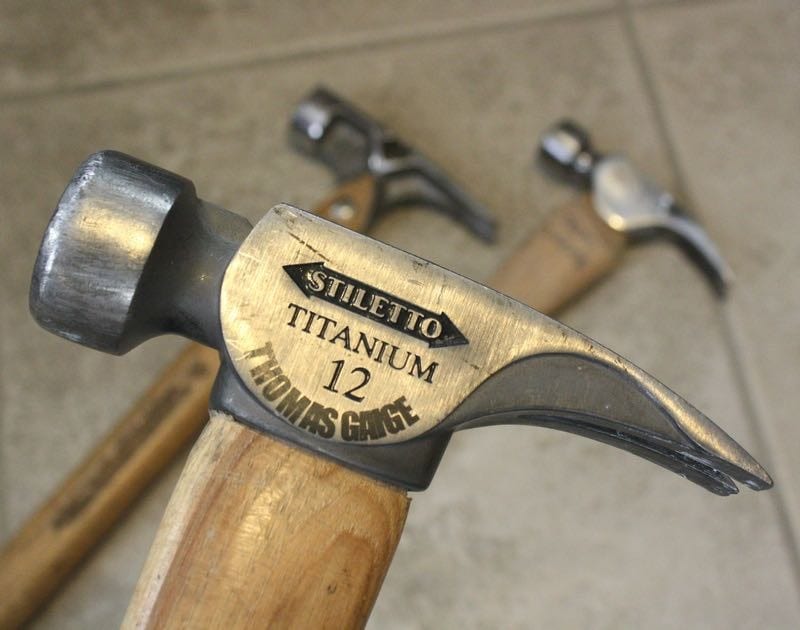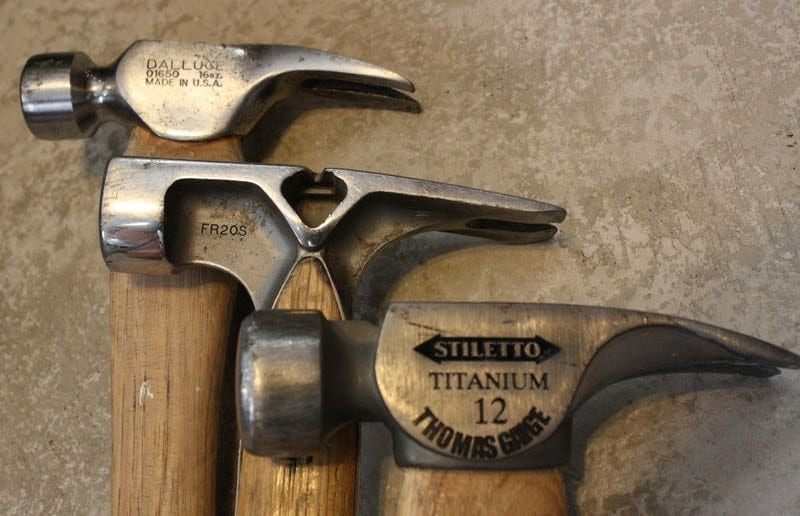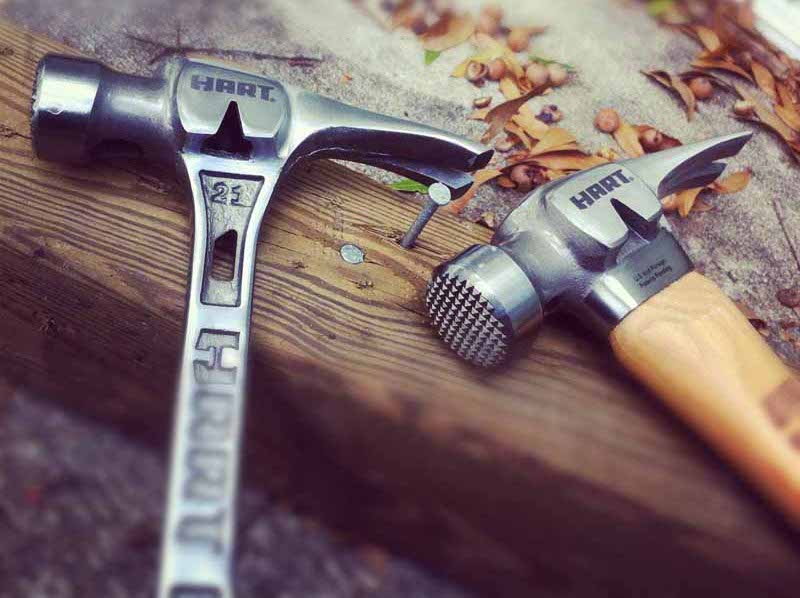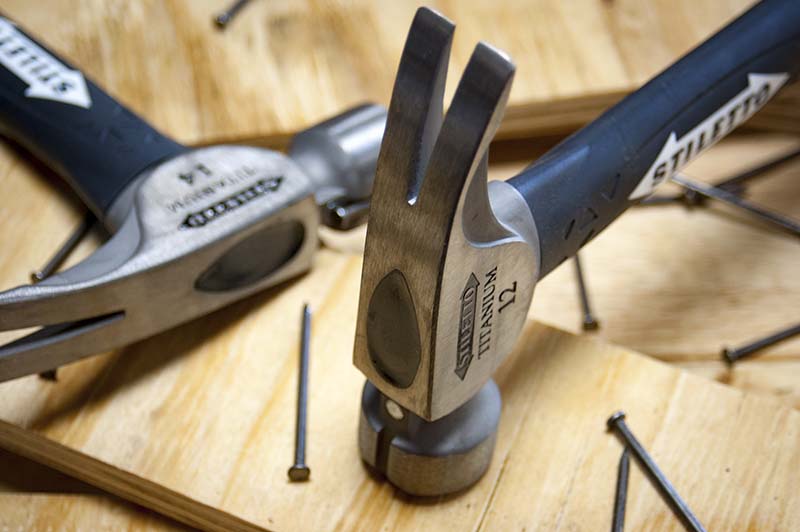If you swing. a hammer for a living, you know the titanium hammers vs steel hammers debate. It’s likely you’ve picked up a titanium hammer or perhaps you already use one. If, however, you’re unsure as to whether you should spend the typical $100+ price for titanium, this article may help.
Titanium Hammers vs Steel Hammers on Weight
Just about any framer, form builder or scaffold erector that has been swinging a hammer as part of his livelihood can tell you that, at some point in their career, they have suffered from joint and muscle pain in their hammering arm. The very tool of their trade can often be the culprit responsible for this discomfort. This situation first prompted us to compare titanium hammers vs steel hammers in the first place.

If the hammer is a means to an end, it makes sense to maximize the hammer’s potential. So how do titanium hammers make your job healthier? We’ve reviewed the Stiletto 12 oz Titanium Remodeler hammer and the Stiletto Titanium flat bars, so we wanted to know.
The Physics of the Swinging Hammer Action
This question had us turning to Joel Allen, Director of Innovation at Stiletto Titanium Tools for some input. He explained that the physics of titanium hammers vs steel ultimately comes down to energy transfer. In the motion of hammering, energy originates in your arm (particularly, your muscles & joints). This energy gets stored in the hammer’s head and is released upon impact with the nail.
A titanium hammer harnesses a full 97% of the energy garnered from that hammer swing and transfers it directly to the nail. For comparison, a steel hammer transfers only 70% of that energy to the nail. If you do some quick math you may wonder where the 27% loss of energy went on the steel head hammer.
For the most part, it gets transferred back to the user through the energy that is released in the recoil of the steel. Essentially, vibrations are sent through the hammer head, back down the handle, and into your arm. While some steel hammers have implemented some vibration-absorbing handle materials, at the end of the day, steel remains less efficient at transferring the strike energy to the nail.
Titanium Hammers Lighter vs Steel
In addition to its vibration properties, titanium is also roughly 45% lighter than steel. That means that you not only get a more effective transfer of energy, you also expend less energy swinging a titanium hammer. The lighter weight heads are similarly-sized as their steel counterparts, and so the reduction in weight doesn’t reduce the area of the striking face. So is this the best framing hammer type you can buy?

If Titanium Hammers are Better, Why Doesn’t Everyone Use One?
Joel laughed as I asked him this, but he quickly got serious. He told me that in his many conversations at job sites and trade shows, most guys are quick to say there is no point in owning a lightweight titanium hammer.
But then they get to use one.
For many guys, it is an eye-opening experience. What sells titanium hammers isn’t an end-cap display in a home improvement warehouse or hardware store, but getting the opportunity to actually swing one. You have to put one in a tradesman’s hands and let them experience the difference. Take Stiletto, for example. Since they started selling titanium hammers back in 1997, word of mouth has been their biggest marketing asset. People that use titanium hammers realize their benefits and have done an amazing job spreading the word.

The biggest deterrent or excuse for not purchasing a titanium hammer is its cost. In its raw form, titanium is about five times more expensive than steel to produce. In addition to the high raw material costs, it is also more difficult to make titanium tools due to the manufacturing process. For this reason, a titanium hammer can easily be four to ten times more expensive than comparable steel hammers.
Code Embed: Cannot use CODE1 as a global code as it is being used to store 1905 unique pieces of code in 3316 posts
And the Final Reason to go Titanium…
The health benefits of titanium hammers vs steel hammers took a while to sink in. When they hit the market 16 years ago, facts seemed scarce. They now seem to show a significant rise in user comfort. If you factor in fewer pain pills, doctor visits, and other muscle or joint injuries, the additional cost of a titanium hammer versus a steel hammer quickly pays for itself. The greater efficiency and the reduction in weight help reduce the potential for carpal tunnel syndrome and tennis elbow. In the end, that means less downtime, more productivity, and (most importantly) less pain while working.
If you use a hammer all day long, anything that can make your work easier and promote better health is something worth taking a look at. But don’t just look at it—pick one up and give it a swing!
Special thanks to Joel Allen, Director of Innovation at Stiletto Titanium Tools for speaking with us about titanium tools.



